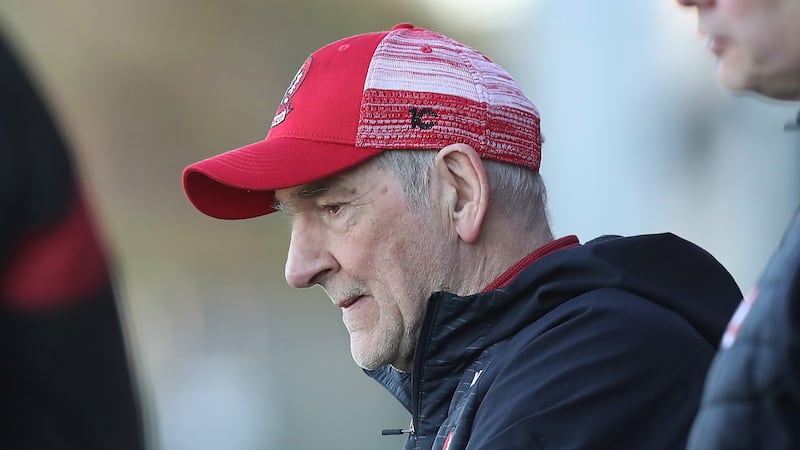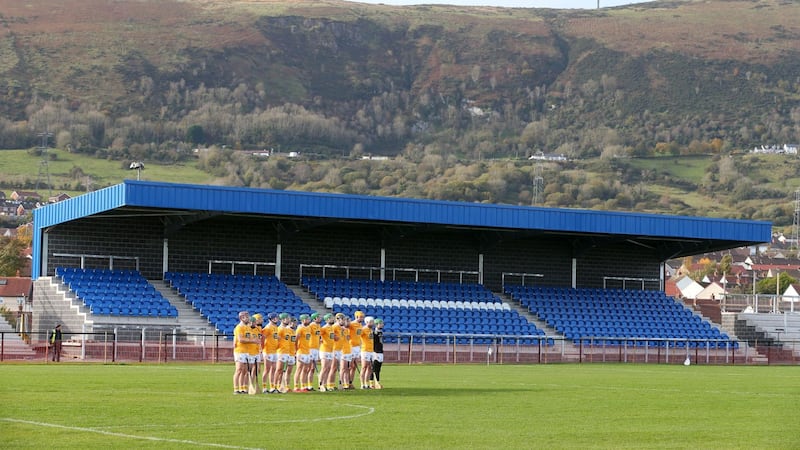AGAINST THE BREEZE
THE Championship structure is unfair and hopelessly outdated, club players are treated disgracefully and excessive demands are being placed on county footballers. And the GAA's solution to these deep-rooted and age-old problems? The leadership wants to bring the All-Ireland finals forward by one or two weeks. (They're still not sure).
As remedies go, it's like using a plaster to mend a broken leg.
A brief summary of the main challenges facing the GAA is as follows: * The bloated inter-county season consumes nine months of the year. * Club fixtures are an administrative nightmare. The elongated county calendar (Dr McKenna Cup, or equivalent, National League, provincial Championship and the All-Ireland series) means it's impossible to provide club players with a fixed programme of games. * Too much is being asked of county players. The combined demands of club and county means they are faced with a never-ending season. * The provincial Championship structure, a hangover from the 19th century, provides an unfair advantage to the strongest counties in Munster and Connacht. * The provincial Championships and the All-Ireland series provide no realistic rewards for weaker counties. Year after year, they are doomed to fail. * The National League, a competition which takes three months to complete, is an increasing irrelevance which only serves as a further obstacle to club competitions.
The most influential figures in the GAA are acutely aware of the aforementioned problems. Sadly, the willingness to tackle them is virtually non-existent.
The latest effort to tackle the club fixtures crisis is really only a token gesture.
Still, the proposal to play the All-Ireland finals one or two weeks earlier must be applauded. It's a welcome initiative.
And the rationale behind the idea is sound. Bringing the All-Ireland final forward by a fortnight means the semi-finals and quarterfinals must be played earlier. Consequently, the provincial councils will be forced to expedite their Championships. The days of the Ulster Council taking nine weeks to play eight games could be coming to a close. Streamlining the provincial competitions and All-Ireland series means the vast majority of counties will have exited the Championship by mid-July. The basic theory is that the last two weeks of July, August, and September will become the exclusive preserve of county championships.
Well, that's how the grand plan is being sold by GAA president Liam O'Neill.
The most obvious criticism to make of the proposal is that it's not going to make a huge amount of difference. By July 20 this year, 20 counties had been knocked out of this year's Qualifiers.
At a media briefing during the Allstars Tour to Boston, O'Neill tried to present the solution of bringing the All-Ireland finals forward as some type of momentous game-changer. It is nothing of the sort.
From 2016, the All-Ireland club finals will be played in December. Croke Park had to make a compromise. Backed into a corner, this is the best idea they could muster.
But the leadership needs to be much bolder. At present they are only tip-toeing around the issues. Indeed the proposal to create a window for club championships from mid-July could potentially exacerbate an existing problem. When county managers can see that a definite time has been allocated for club championships, it will strengthen their view that they can claim ownership of county players from January to July. The trend of county players being withheld from league games within their county, or those league games not being played at all, will probably increase.
The biggest failing of GAA officialdom is that they have forgotten what constitutes the promotion of the games.
Officials are obsessed with county competitions. But the clamour to gain publicity and media exposure for county football is misguided. Croke Park chiefs will claim that the Gaelic Games must be "kept in the shop window". That is wrong. The first page of the Official Guide states explicitly that the "primary purpose of the GAA is the organisation of native pastimes and the promotion of athletic fitness".
No mention is made of shop windows. Nowhere does it state that preference should be given to county competitions. The emphasis is placed firmly on the "organisation" of games. This means playing them.
If the GAA's leaders want to uphold these fundamental tenets, then they should be trying to create structures which generate the maximum number of games for the maximum number of players.
They must acknowledge that club footballers and hurlers constitute 98 per cent of the GAA's playing population. To date, most of Croke Park's efforts have been driven towards promoting the games played by the elite two per cent. Radical change is required. It's also long overdue.
The GAA should seriously consider the type of idea which was recently mooted by Dublin manager Jim Gavin.
Gavin thinks the GAA should scrap the National League. Outlining his preferred structure, Gavin said: "One model would be to play the provincial Championships earlier in the year then move into your group format for the All-Ireland Championship series. "Incentives could be given to teams to do well in the provincial Championships. The teams that
reach the finals could get seeded." There is huge merit in Gavin's proposal. Playing a knock-out provincial Championship in February or March carries great appeal. Counties knocked out in the first round would have extra weekends for club matches.
A league-based Championship played over the four months between May and August would bring an equity which is sorely missing from the current structure.
It would also provide an opportunity to create a two or three-tiered Championship. If teams like Carlow, Waterford, Leitrim or Fermanagh fail to win their province, they can be offered a crack at a competition which they actually have a chance of winning.
In one swoop, Jim Gavin's proposal actually addresses all the problems which are highlighted at the start of this column.
But this is the type of leadership and thinking which needs to be coming from the corridors of power.
The job facing the GAA's leadership requires a sledgehammer. By recommending that the All-Ireland finals are brought forward by a few weeks, Liam O'Neill and Páraic Duffy have gone to work with a toothpick.


